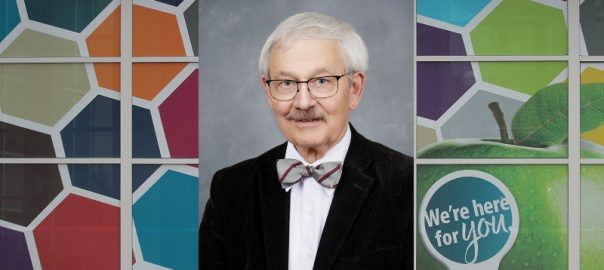(From Dr. Bill Kose with Blanchard Valley Health System)
Colon cancer is very treatable when detected early, but not enough people get screened for it regularly. At Blanchard Valley Health System, we encourage people not to forget this important aspect of caring for themselves and their health.
The recommended screening age has been reduced to 45 years old for individuals who have no symptoms. People with a family history of colon cancer may want to talk to their doctor about possibly getting screened at an earlier age. People living with other gastrointestinal illnesses, such as inflammatory bowel disease or ulcerative colitis, may also be at higher risk and might benefit from getting screened at an earlier age. If you have any questions about whether you should be screened, talk to your primary care provider.
The recommended screening age of 45, which was previously 50, has been lowered because more younger adults are being diagnosed with colon cancer.
People younger than 45 do get colon cancer, too, although not as often. Regardless of your age, it’s a good idea to get checked if you experience symptoms, such as bleeding or a change in bowel habits.
Colonoscopies are the most effective way of screening for colon cancer. People may delay a colonoscopy for many reasons, but the most common is the preparation. The bowel must be completely cleaned out prior to the colonoscopy. This is a day-long process.
However, if you have heard stories of people who had really difficult colonoscopy experiences in the past, keep in mind that things have changed. The preparation process itself, while still uncomfortable, is more tolerable than it used to be.
Anesthesia, too, is very different. You will be fully sedated and should not be awake or aware at all during the colonoscopy itself. However, you should wake up fairly quickly afterward, without the same level of grogginess that patients experienced in the past. You will still need someone to drive you home, but otherwise, you should be able to go about normal activities later that day.
If you’ve never had a colonoscopy before, the process may cause some anxiety if you don’t know what to expect. Be sure to ask your healthcare team any questions ahead of time. They want you to get screened and to be well prepared.
A colonoscopy is considered the “gold standard” of screening for colon cancer. It can have its drawbacks, however. For some people, taking a day off of work for the preparation may not be feasible, for example.
So, while it is considered the best test, we encourage you to seek out other types of testing if you are unable or choose not to get a colonoscopy. Home screening tests can look for microscopic traces of blood in the stool or changes in DNA that might indicate cancer or precancerous polyps. While both false negatives and false positives are possible, these tests are generally considered effective. They can be done at home and do not require preparation or any anesthesia.
A healthy lifestyle may reduce the risk of colon cancer, just as is the case with many other illnesses. Be sure to eat a lot of fruits and vegetables and consume plenty of fiber. Additionally, we urge people to get exercise and generally take good care of themselves. This will go a long way toward protecting not only your colon but your entire body.
William Kose, MD, JD
Vice President of Special Projects,
Blanchard Valley Health System
